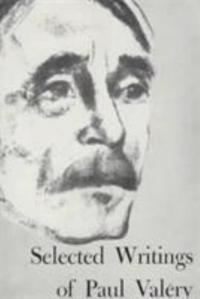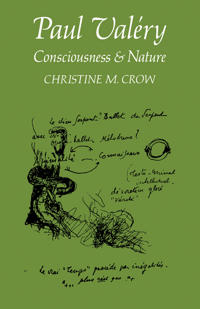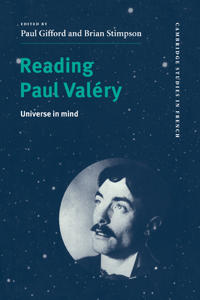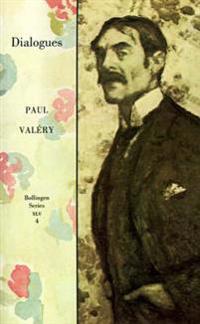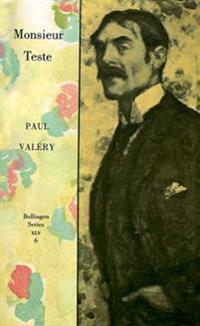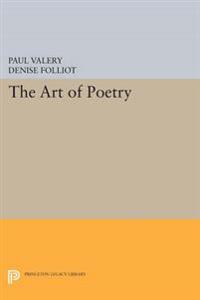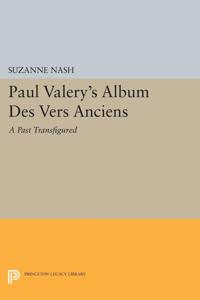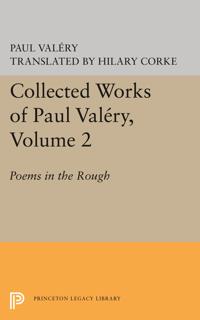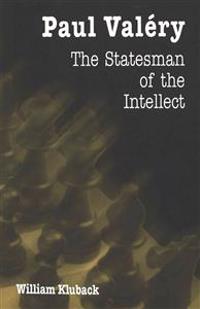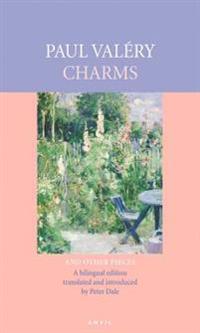Paul Valery (Häftad)
avChristine M. Crow
ISBN: 9780521114271 - UTGIVEN: 200906Paul Valery refused to choose between art and science. Although critics have often separated in their discussions of his work his poetry and his thought, he looked upon poetic composition as but one means of deepening his interest in the human mind in all its possibilities. It has been said neverthe[...]
Reading Paul Valery (Häftad)
avBen Hammersley
ISBN: 9780521585446 - UTGIVEN: 201008Paul Valery's work is a unique odyssey in the universe of ideas and mental forms. The most recently acknowledged - and the most private - of the masters of modernity, Valery is perhaps the most radical and wide-ranging. He navigates freely within the mental galaxies known to scientists, poets, liter[...]
Dialogues (Häftad)
avPaul Valery, Wallace Stevens
ISBN: 9780691018782 - UTGIVEN: 198907Valery's dialogues are considered his most important works of imagination in prose. The volume brings together for the first time all the formal dialogues, including Eupalinos and six other pieces.[...]
Monsieur Teste (Häftad)
avPaul Valery, Jackson Mathews, Jackson Mathews
ISBN: 9780691018799 - UTGIVEN: 198907Although not autobiographical in any usual sense, Valery's novel is profoundly personal. Monsieur Teste reflects Valery's preoccupation with the phenomenon of a mind detached from sensibility, yet he is also an ordinary fictional character. This volume includes "Snapshots of Monsieur Teste," excerpt[...]
The Art of Poetry (Häftad)
avPaul Valery
ISBN: 9780691611549 - UTGIVEN: 2014-07
All of the major meditations on the theory and practice of poetry by one of the greatest poets of our time--and perhaps the one who has most scrupulously analyzed his art--are included in The Art of Poetry.
Originally published in 1985.
The Princeton Legacy Library uses the latest print-on[...]Paul Valery's Album Des Vers Anciens
ISBN: 9780691613703 - UTGIVEN: 2014-07Questioning the view that the work is not representative of the poet's mature accomplishment, Suzanne Nash argues that the revisionary process involved in its creation led Valery to reflect on problems fundamental to poetic production and thus provided inspiration for all his later poetry. Originall[...]
Collected Works of Paul Valery
ISBN: 9780691621371 - UTGIVEN: 2015-03Includes some of Valery's finest strokes of imagination, Broken Stories; some of his wittiest observations, Mixtures, Poems in the Rough; and even two of his great poems, Parables and The Angel--all written in the form of prose. Originally published in 1970. The Princeton Legacy Library uses the l[...]
Paul Valery: The Statesman of the Intellect (häftad)
ISBN: 9780820441139 - UTGIVEN: 1999-03This is William Kluback's sixth volume on Paul Valery. As Kluback moved from one volume to another, he realized how Valery mastered the human mind; how he saw in it man's most distinguished power. In face of the Gulags and the Holocaust, of mass murder, and universal deception, Valery maintained his[...]
Charms (Häftad)
avPaul Valery
ISBN: 9780856463983 - UTGIVEN: 200708Paul Valery's most celebrated collection "Charmes" was first published in 1922. It contains several of his most famous poems, including "Aebauche d'un serpent" and "Le cimetiere marin" - in Yvor Winters' view 'the two greatest short poems ever written'. This collection as a whole has achieved classi[...]
Cahiers. Eros / Bios / Mathematik / Wissenschaft / Geschichte und Politik / Unterricht (Övrigt)
avPaul Valery
ISBN: 9783100870155 - UTGIVEN: 199204


